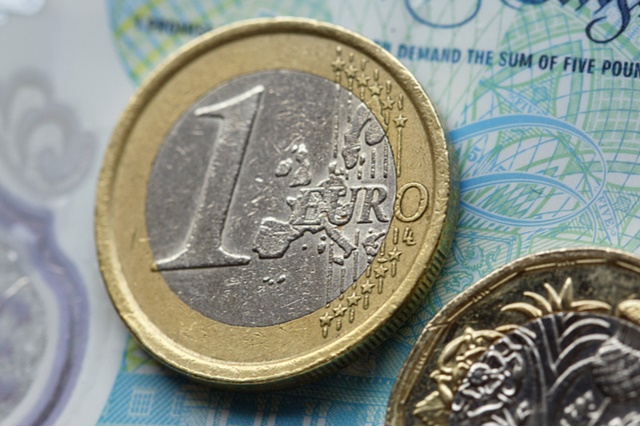Pound Sterling Euro (GBP/EUR) Exchange Rate Left Muted despite Plans to Ease UK Restrictions Further
UPDATE: The Pound Sterling Euro (GBP/EUR) exchange rate was left largely flat this afternoon. The pairing was left trading at around €1.1231.
The Pound was left flat against the Euro despite an increase in optimism on further plans to ease current lockdown restrictions in the UK.
Reports suggest Prime Minister Boris Johnson is planning to relax rules further. This includes rules on outdoor dining and weddings.
However, analysts continued to warn that Brexit will remain a risk for the British currency after last week saw trade discussion between the UK and EU fail to make progress.
According to Viraj Patel, FX and global macro strategist at Arkera:
‘We could see the Pound tread water around these levels in absence of any further positive catalysts and investors take stock of what will happen next in broader markets – especially ahead of the Fed meeting later this week. However, with Brexit headwinds also coming to the forefront of investors – the risks are mildly tilted to the downside for the pound this week.’
Pound Sterling Euro (GBP/EUR) Exchange Rate Muted and ECB Continues to Support the Single Currency
The Pound Sterling Euro (GBP/EUR) exchange rate was left largely flat this morning. The pairing was left trading at around €1.1234.
The pairing was left flat this morning as sentiment amongst traders continued to improve as they continue to look for signs of a rebound as economies around the world reopen.
However, the single currency continued to ride a wave of optimism after last week’s European Central Bank (ECB) meeting.
The bank said it would increase bond purchases to provide the hardest-hit economies in the Eurozone with a boost after being battered by the coronavirus crisis.
Markets were left largely flat on Monday after a surge in optimism after Friday revealed the US jobs market unexpectedly began to recover.
Unemployment in the world’s largest economy unexpectedly declined to 13.3% despite forecasts suggesting a jump to around 20%. Added to this, the economy added around 2.5 million jobs despite expectations of around 8 million job losses.
This boosted riskier assets such as Sterling. Although, the pairing was left flat this morning as last week’s jobs boost faded and disappointing Chinese and German trade data weighed on risk appetite.
Euro (EUR) Flat as Germany’s Economic Recovery ‘is Beginning Now’
The single currency was left under pressure today after German industrial output plummeted by the most on record.
The plunge was due to the coronavirus pandemic forcing companies in the bloc’s largest economy to decrease production in April.
Data released by the Statistics Office showed German industrial output plummeted by -17.9% between March and April.
Data also showed manufacturers of capital goods suffered the worst decline of -35.3% while construction was down -4.1% and the energy sector suffered declines of -7.2%.
The Economy Ministry noted that as measures to help contain the virus were implemented from mid-March, restrictions took their toll in full scale in April. The ministry also added:
‘The low point has been reached. With the gradual easing of protective measures and the resumption of production in the automotive industry, the economic recovery is beginning now.’
This weighed on the Euro as it increases expectations that the bloc’s largest economy will suffer its steepest decline since the end of World War Two in Q2.
Commenting on this, Thomas Gitzel, VP Bank Group Economist noted:
‘German gross domestic product is likely to shrink by more than 10% in the second quarter, a reading never measured before in peacetime.’
Pound Euro Outlook: Will EUR Slide on Dire German Exports Data?
Looking ahead, the Euro (EUR) could slide against the Pound (GBP) following the release of Germany’s trade balance data.
If the export-reliant German economy suffers a lower-than-expected drop in exports, the single currency will fall.
Meanwhile, disappointing Eurozone GDP could send the Euro lower against the Pound.
If the third estimate Q1 Eurozone GDP shows economic activity contracted at a sharper pace than expected during the first three months of 2020, the Pound Euro (GBP/EUR) exchange rate will edge higher.


Comments are closed.